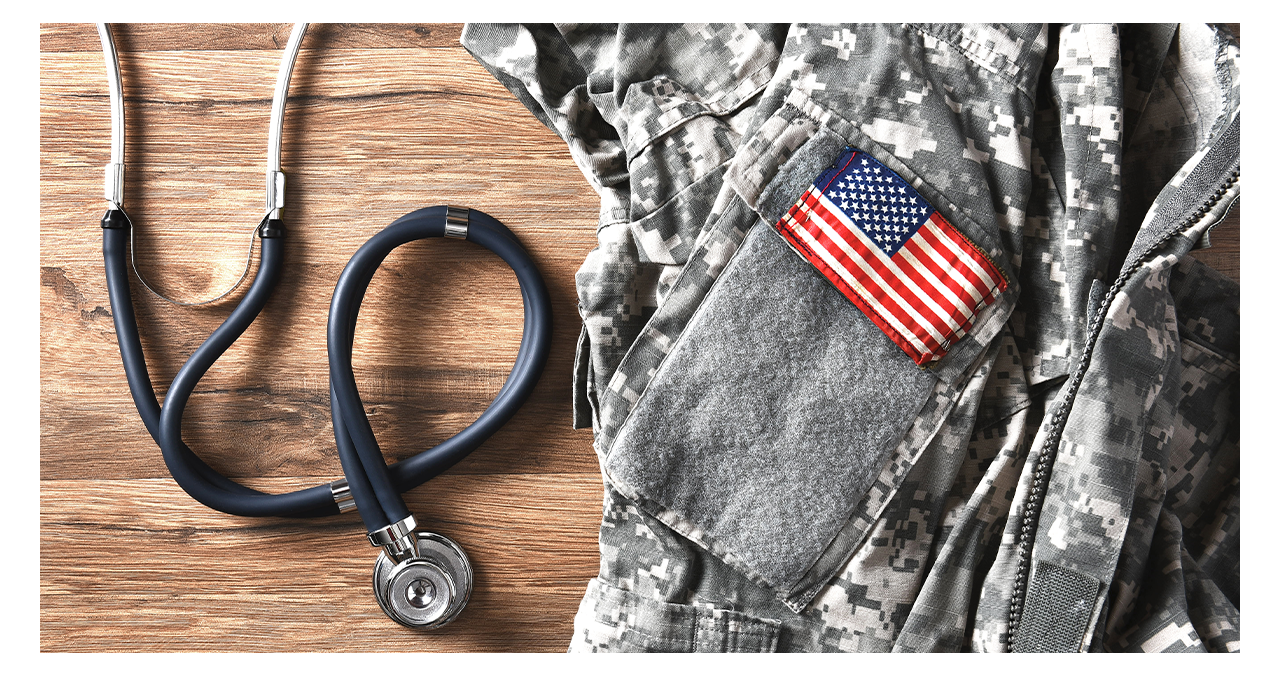
I am a U.S. Air Force veteran who sustained a severe traumatic brain injury in 1990. I am an employee of the Veterans Health Administration, and I am a Fellow of the American College of Healthcare Executives. On this Veterans Day, I believe it is imperative for us to share the great things that happen in VA Medical Centers each day. In my experience, the VA is the best place to work and provides the best healthcare.
I survived a severe TBI 31 years ago while in the Air Force and the care I received at Virginia Commonwealth University Medical Center (Richmond VA Medical Center’s academic affiliate), where I was in its ICU in a coma for more than 40 days, was excellent. The TBI Rehabilitation Program at Richmond VA Medical Center was superior. The rehabilitation experience gave me skills and provided the knowledge and compensatory techniques I needed so I could thrive and be as functionally and cognitively independent as possible.
The excellent and compassionate care I received encouraged me to become a physical therapist when the Air Force medically discharged me in March 1991. I was fortunate to receive VA’s Vocational Rehabilitation, Chapter 31 to take college classes and pursue a degree in physical therapy. I eventually graduated in September 1999 with a Master of Science in physical therapy. However, once I was board certified as a physical therapist, the only place I wanted to work was in the VA. In 2000, the Paralyzed Veterans of America lobbied Congress and requested that Richmond VA Medical Center hire more therapists for their Spinal Cord Injury & Disorders unit. I was fortunate to be hired in 2001 and start my VHA career in the unit. In 2003, I became a SCI&D therapy specialist and in 2004, I participated in a VHA Leadership Development Institute where I had the desire to become a healthcare executive. I observed students in the VHA Graduate Health Administration Training Program obtain fellowships with the medical center leadership suite and then progress into management positions. I learned the common thread was being a member of ACHE and becoming involved with the organization. I became an ACHE member in October 2005. I also returned to school to obtain an MBA so I could have the business knowledge to compliment my clinical knowledge to establish the foundation needed to be an effective and efficient healthcare leader.
When I worked in the VHA’s Office of Academic Affiliations, I learned the VA is the largest provider of health profession education programs in the nation. Approximately 70% of U.S. physicians have received some of their medical training in a VA Medical Center. I also learned approximately 30-35% of VA healthcare is provided to veterans by our medical residents. This means to me that the latest evidence-based, best-practice skills and techniques are used when providing care for veterans. As a patient, I was given the gift of outstanding quality of care and services to live as close to a normal life as possible.
Without the VA and ACHE, I would not be where I am in my career today. My career and professional development opportunities were enhanced once I became more involved in my local ACHE chapter in January 2008. I was elected as the chapter’s membership director, 2010–2013. James J. Burks, FACHE, who served as Regent for Air Force and as an ACHE Governor, was my mentor as I pursued Fellow status. In 2011, I passed the Board of Governors Exam and became an ACHE Fellow.
I submitted proposals to ACHE titled, “GROW a Coaching/Mentoring Program to Facilitate Growth and Develop Leaders” to present at the Congress on Healthcare Leadership, 2012–2014. During this presentation, I provided a separate area on “How to Effectively Mentor Across Multiple Generations.”
From 2016 to 2019, I led another team and submitted proposals to present at Congress titled, “Leading a Successful Multigenerational Healthcare Organization.” After our first year presenting this program, we received very high evaluations based on our unique presentation style and audience engagement. After providing this Congress presentation, the VHA Healthcare Leadership and Talent Institute asked me to teach this session to VHA’s Health Care Leadership Development Program.
I have returned to the Richmond VA Medical Center as the first director of SCI&D Rehabilitation Services, where I oversee and direct four different therapy disciplines. I hope one can see how both the VA and ACHE have opened multiple doors for me during my leadership journey. ACHE’s focus on continuous learning, the FACHE® credential, multiple leadership development and networking opportunities provide unlimited resources to help one to succeed.
Although my brief story is positive and has a successful ending on this Veterans Day, let us not forget all veterans are not as fortunate. We must recognize our nation’s heroes and provide each of them with the comfort, support, guidance, understanding and assistance they have earned and deserve. On this Veterans Day, I encourage you to reach out to a veteran and say, “Thank you for your service.” The smile you will get in return is priceless.
John W. Sharpe, FACHE, is director, SCI&D Rehabilitation Services, Richmond VA Medical Center. The views expressed in this post are those of the author and not of the Department of Veterans Affairs.
